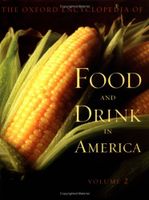Label
All
0
Clear all filters
🌷 Spring savings – save 25% on ckbk Premium Membership with code SPRING25
gras
Appears in
Published 2004
(Generally Recognized as Safe) A generally recognized as safe (GRAS) substance is one that has a long, safe history of common use in foods, or that is determined to be safe based on proven science. The designation granted by the American Food and Drug Administration (FDA) exempts the substance from the Federal Food, Drug, and Cosmetic Act (FFDCA) food additive tolerance limitations.
On 1 January 1958, when knowledge about food science and the potential long-term harmful effects of food chemicals on health was just beginning to emerge, Congress passed the Food Additives Amendment to the FFDCA. Congress deemed it was not necessary for the food industry to prove the safety of substances such as salt, sugar, and spices intentionally added to foods if they were already generally regarded as safe by qualified scientists. On 9 December 1958, Congress published a list of seven hundred GRAS substances whose safety was previously established. This list is not all-inclusive nor a permanent guarantee of a substance’s safety. If new evidence suggests a GRAS substance may be unsafe, the FDA can prohibit its use or require further studies to determine its safety. The FDA established a process in 1972 for petitions to evaluate the GRAS status of substances not on this list and published successfully approved GRAS substances in the Federal Register.
Become a Premium Member to access this page
Unlimited, ad-free access to hundreds of the world’s best cookbooks
Over 150,000 recipes with thousands more added every month
Recommended by leading chefs and food writers
Powerful search filters to match your tastes
Create collections and add reviews or private notes to any recipe
Swipe to browse each cookbook from cover-to-cover
Manage your subscription via the My Membership page
Best value
Part of
Advertisement
Related Recipes
-
-
-
-
Related Reference
-
-
-
-
Advertisement
The licensor does not allow printing of this title



